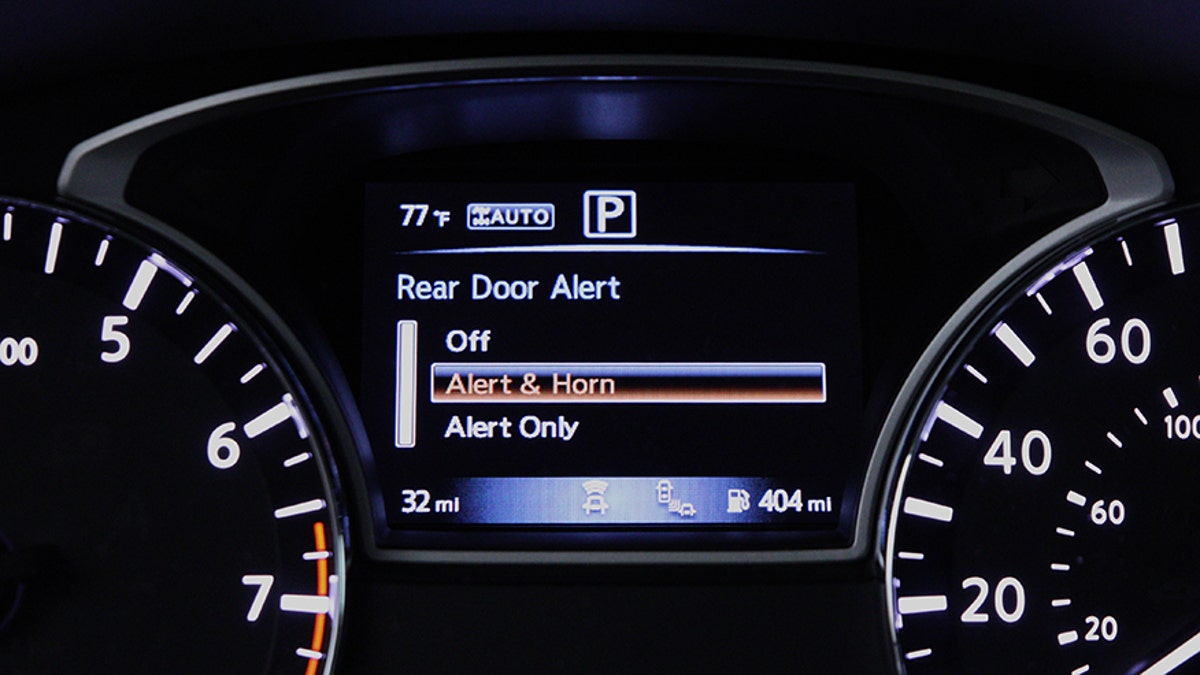
With summer heat on the rise, potential issues posed by interior car temperatures are even more real, but Nissan hopes its new Rear Door Alert (RDA)1 may help reduce concerns. The new system utilizes door sequence logic, center instrument panel message display and industry-first multiple horn honks to help remind drivers to check the rear seat after the vehicle is parked. The system can help remind customers of anything that may be forgotten in the rear seat. First-ever Nissan application will be standard on the family-friendly three-row 2018 Pathfinder SUV. (© 2017 Nissan)
A new report indicates 2017 could be one the worst years in recent history for children dying of heatstroke after being left in cars.
The report, published in the medical journal Pediatrics, surveyed media reports and found that 29 children have died so far in 2017. That’s the highest January to July total ever, and puts the year on a pace ahead of the average of 37 annual deaths seen over the past 19 years.
Accompanying tests done with a dark sedan on a sunny day found that cabin temperatures can rise to as high as 117 degrees in 60 minutes, even when the ambient temperature is as low as 72 degrees.
On average, temperatures were found to rise an average of 3.2 degrees per minute, with 80 percent of the overall increase happening within the first half-hour. Just cracking a window open had an insignificant effect on the rate at which temperatures rose.
The website Heatstroke.org, which is managed by one of the study’s authors, Jane Null of the Department of Meteorology & Climate Science at San Jose State University, points out that all of these deaths, and the estimated hundreds of illnesses children suffer from being left behind in cars, either intentionally or unintentionally, could have been prevented.
Now automakers are starting to employ technology to help do just that.
Last year General Motors introduced a first of its kind feature called Rear Seat Reminder in the GMC Acadia. It monitors the use of the rear doors and alerts drivers with a chime and on-screen message as they turn off the vehicle that they put someone or something back there. GM has since made it a standard feature on over 20 vehicles, with more to come.
Nissan revealed on Wednesday that is following GM’s lead next year with its own Rear Door Alert system, which works much the same way as GM’s technology, but can be set to also honk the horn if the driver ignores other alerts. It will be standard on the 2018 Pathfinder SUV when it goes on sale in September.
Right now, the use of these systems, as well as the many aftermarket accessories that are available, is voluntary, but two bills are making their ways through congress that would mandate their use in the same way airbags are required in passenger vehicles.
One called Helping Overcome Trauma for Children Alone in Rear Seat Act, or HOT CARS, was introduce by Sens. Richard Blumenthal, D-Conn., and Al Franken, D-Minn., on Monday, while a companion bill sponsored by House Reps. Tim Ryan, D-Ohio, Peter King, R-N.Y., and Jan Schakowsky, D-Ill., is also under consideration.